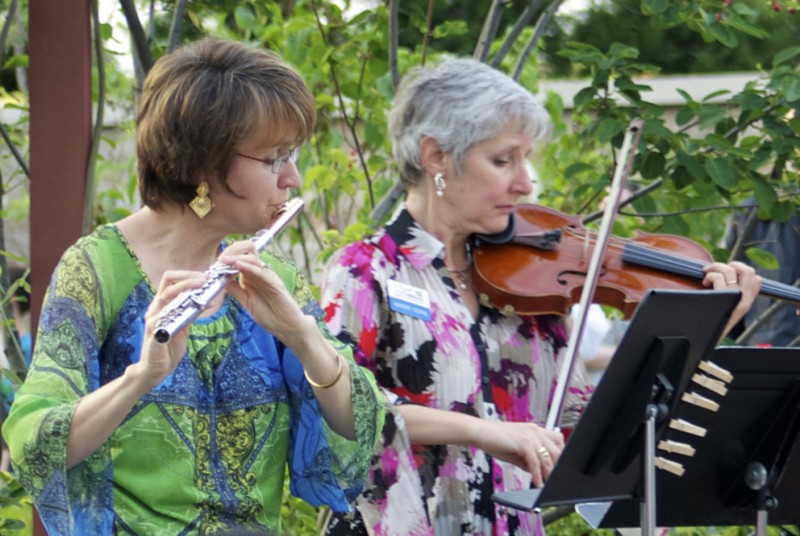Remember the fad of playing Mozart CDs for newborns? In the 1990s, a group of neuroscientists created a surge in classical CD sales when they published findings suggesting that exposure to music by Mozart could enhance human spatial reasoning and memory — the so-called “Mozart effect.” People have long believed that classical recordings are a musical prescription to boost intelligence and test scores and reduce anxiety and depression — and studies continue to suggest there may be some truth to this notion.
However, this music was created to be enjoyed as an art form, not simply to be used as a therapeutic tool. Does classical music still speak to audiences today?
“Classical music is alive and well,” says George Trudeau, Director of the Center for the Performing Arts at Penn State. “What has changed is there are more avenues than ever before for classical performance and public education, including public radio, the Internet, and other digital technologies.”
Although there are occasional gloom-and-doom forecasts about the imminent death of classical music, the National Endowment for the Arts reports that the total number of adults annually attending classical music performances is down only 2.8 percent from 1982 to 2012, explains Trudeau. “Many people clearly still value the live experience,” he notes. “However, attending live performances is only a small part of how classical music is experienced today. There are new ways to attend, as well.”
For instance, Trudeau says, “The New York Metropolitan Opera’s HD broadcasts, reach millions of viewers each season.” This is not only less expensive than attending at the Met, but it’s also more casual. Audiences can see a live broadcast of an opera at their local movie theater, while wearing jeans and sweatshirts, explains Trudeau.
“Classical music infuses our daily lives,” he adds, “through commercials, films, public life, and popular culture, to motivate, set moods, and inspire other artistic expressions, and the entire genre is now only a download away.”
Classical music — defined as western art music, both sacred and secular — traces its roots to eleventh-century Europe, notes Trudeau. It was popularized during what’s known as the Classical period, from 1750 to 1820. During that time many of the music’s most revered composers, such as Beethoven, Mozart and Haydn, created their masterworks. Characteristics include notating or prescribing the music in written form, instruments organized into common ensembles, and the use of similar musical forms. Says Trudeau, contemporary composers and performers keep the art form fresh by exploring links to other musical forms, new combinations of performers, and approaches to the concert experience.
At Penn State, the Center for the Performing Arts is committed to raising the profile of the genre through its Classical Music Project. Now in its fourth season, the project seeks to engage Penn State students, faculty, and the community with classical music programs and provide opportunities to gain an appreciation of the form. The project includes artist residencies, faculty partnerships, student programs, and a partnership with Penn State Altoona.
“Ensembles coming to University Park include the traditional as well as those that take an expansive view of the art form by exploring new instrumental combinations, styles of performance, contemporary artistic voices, and connections to other musical forms,” Trudeau explains. “The project also explores a growing interest in experiencing the music in alternative venues and informal settings such as our Classical Coffeehouses.”
Says Trudeau, the percentage of Penn State students attending classical music performances increased from 26 percent of total sales to 40 percent during the first three seasons of the Classical Music Project. Engagement programs, including workshops and informal performances, have elicited positive student responses.
They’re not attending concerts because they hope a “dose” of Mozart will boost their IQ or test scores, points out Trudeau. Students tell him that exposure to classical music is enriching their lives. As one student put it, “I realize that music and the arts are more than what I thought, and can relate to life in many different ways.”
For everyone hoping to create a new generation of classical music fans, that sentiment hits all the right notes.
George Trudeau is the director of the Center for the Performing Arts at Penn State and can be reached at gjt11@psu.edu.
